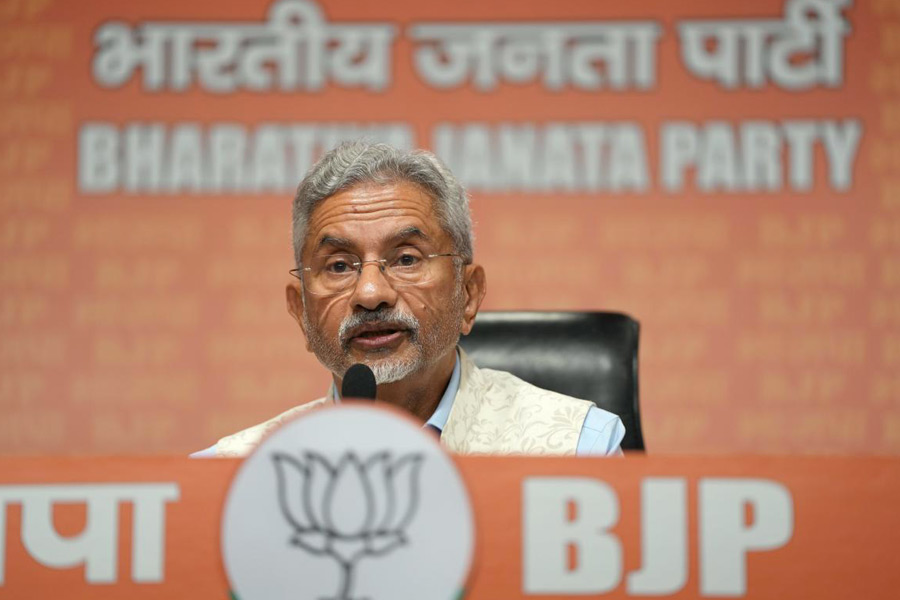As foreign minister S. Jaishankar raised the Katchatheevu controversy on Monday, his ministry was silent to questions on whether India intended to reopen the 1974 agreement with Sri Lanka and whether the Narendra Modi government had taken it up with Colombo during its 10 years in office.
Jaishankar dodged these questions at his media briefing, saying the matter was sub judice. But an RTI reply given by his ministry in January 2015, on his watch as foreign secretary, somewhat weakens the case the BJP is trying to build up against the Congress and the DMK saying they had connived to give away Indian territory.
Asked who was the real owner of the Katchatheevu island, the ministry had on January 27, 2015, referred to agreements of 1974 and 1976 and said: “This did not involve either acquiring or ceding of territory belonging to India since the area in question had never been demarcated.”
It added: “Under the Agreements, the island of Katchatheevu lies on the Sri Lankan side of the India-Sri Lanka International Maritime Boundary Line.”
Several Opposition leaders on Monday cited this reply and asked if Jaishankar still stood by it.
“Is Dr. S Jaishankar, now Minister of External Affairs, disowning the reply given by the Ministry of External Affairs on January 27th, 2015, when the same Dr. Jaishankar was Foreign Secretary?,” asked the Congress general secretary in charge of communications, Jairam Ramesh.
This line of attack on the Congress, launched by the BJP since Sunday with an eye on Tamil Nadu’s voters, is not new.
Last year, responding to a no-confidence motion brought against his government, Prime Minister Narendra Modi had said the Indira Gandhi government had given away the Katchatheevu island, which lies northeast of Rameshwaram, Tamil Nadu.
Both the DMK and the AIADMK have over the years filed petitions seeking retrieval of Katchatheevu, keeping it a live issue in Tamil Nadu, especially since fishermen from Rameshwaram and their vessels are often captured by Sri Lanka for straying into now contested waters.
But, according to a legal paper authored by the Society for International Law and Policy of the National University of Juridical Sciences, both countries have notified the two agreements under the UN Convention on the Law of the Seas (UNCLOS) – an international agreement that provides the legal framework for all marine and maritime activities.
“The agreement noted Article 15 of the UNCLOS which exempted the use of median line to determine the IMBL (International Maritime Boundary Line), and recognised the adjustments agreed to it by the contracting nations. Due to this, the Katchatheevu island fell on the Sri Lankan side of the IMBL,” the legal paper says.
“In addition to that, the agreements entered into by India and Sri Lanka are binding under the Vienna Convention on the Law of Treaties, 1969 (VCLT). There are no provisions in both the Agreements that address either withdrawal or termination.
“According to Article 56 of the VCLT, India cannot unilaterally revoke the agreement. Further under the provisions of Article 65(1), to withdraw India needs to notify Sri Lanka and acquire its consent.
“If Sri Lanka does not give its assent, then the two countries will have to take recourse under Article 33 of the UN Charter. In such a case, a peaceful resolution may be found by referring to arbitration or consulting a third party.”
The legal paper added that Sri Lanka had staunchly opposed any change to the status quo on the maritime boundary with India.











